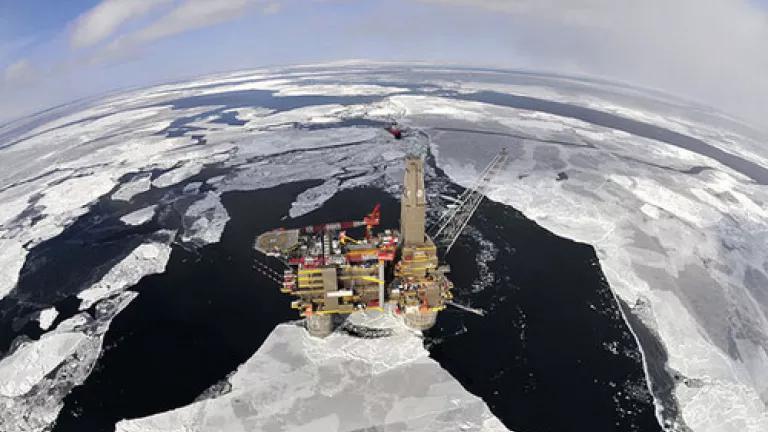
Written by Josh Axelrod, Law and Policy Consultant for the Canada Project
Chevron recently announced that it would indefinitely put on hold plans to pursue regulatory approval of deep water drilling for oil in Canada’s Beaufort Sea. The move is significant as this proposal was one of two projects (the other by Exxon-owned Imperial Oil) seeking to open up deep Arctic waters to oil drilling. Just prior to this announcement, Chevron was on the verge of submitting proposed well safety documentation to Canada’s National Energy Board (NEB) in an attempt to evade longstanding safety rules that for decades were designed to minimize the impact of an Arctic well blowout.
Citing “economic uncertainty” likely due to the continued decline in world oil prices, as well as “other factors,” Chevron’s about face marks a full shift. Six months ago, the company was in the midst of urging Canadian regulators to abandon their usual review procedure for safety plans from well blowouts.. At that time, it appeared that Chevron was ready to move forward quickly, stating that it would file proposed alternative well control plan with the NEB by “early 2015.”
Indeed, several regulatory developments over the past six months possibly influenced Chevron’s plans to abandon the project. Taken together, these developments, and the growing list of organizations, communities, and individuals participating in the process, suggest that oil companies seeking exceptions to safety rules cannot expect to ram these projects through the regulatory process. Instead, they will receive a thorough and lengthy vetting—a reality that will expose the simple truth that the risks these projects pose to the Arctic environment seriously outweigh the limited rewards. Here are the factors that may have played a role:
- First, in a separate and parallel process (relating to Imperial Oil’s similar proposed deep water project), the Inuvialuit Environmental Impact Board (EIRB) released an updated draft environmental impact assessment scoping document that significantly broadened the scope of environmental review that will be required for Beaufort Sea projects.
- Second, the NEB’s “List of Issues” to be considered during its advance ruling process that Chevron itself helped to instigate was broadened to include two challenging issues: a worst case scenario and the operating challenges of the unique Arctic environment.
- Finally, in recent weeks, the EIRB gave public notice of its own “advance” process: early analysis of Imperial Oil’s worst case scenario as required by the Inuvialuit Land Claims Agreement.
While Chevron’s project is on hold, a similar project proposed by Imperial Oil is still moving through the regulatory process. In fact, Imperial has stated that it will continue ahead with its own project, which has nonetheless already been delayed by at least a year. Despite Imperial’s apparent commitment, Chevron’s move highlights that these risky, extraordinarily expensive endeavors may be little more than wishful thinking.
